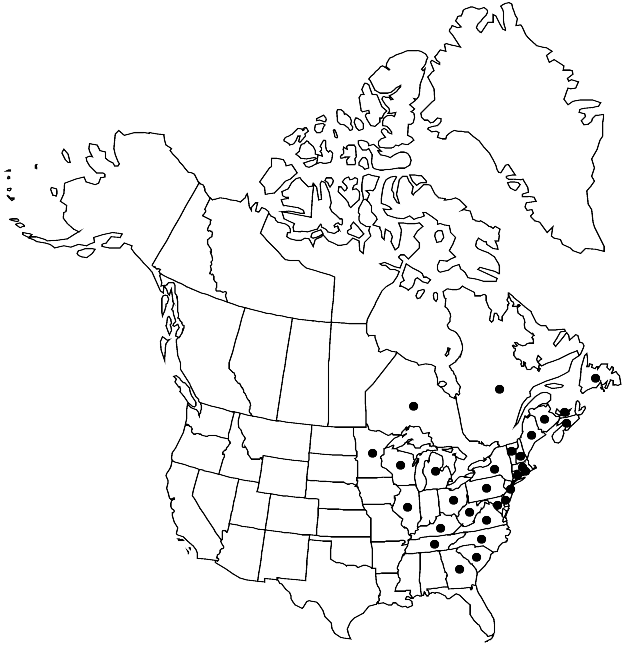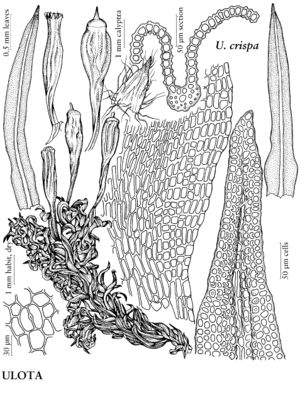Difference between revisions of "Ulota crispa"
Muscol. Recent., suppl. 4: 112. 1818.
FNA>Volume Importer |
FNA>Volume Importer |
(No difference)
| |
Revision as of 19:44, 24 September 2019
Plants to 2.5 cm. Stems erect. Stem leaves crisped-contorted, not twisted when dry, narrowly lanceolate to linear-lanceolate, 1.7–3 mm; base ovate; margins plane to reflexed; apex acute; basal laminal cells linear-elongate grading to quadrate at margin, pale yellow, walls thick; distal cells 7–10 µm, papillae conic, large. Specialized asexual reproduction absent. Sexual condition autoicous; perichaetial leaves not differentiated from stem leaves. Seta 1–3 mm. Capsule short-oblong to oblong, 0.8–2 mm, strongly 8-ribbed 3/4 to entire length, mouth wide, constricted below mouth; stomata in neck and proximal 1/3 of capsule; peristome double; exostome teeth reflexed, densely papillose proximally, slightly papillose-reticulate distally; endostome segments 8, smooth. Calyptra conic, very hairy. Spores 23–29 µm.
Habitat: Branches and trunks of trees, on Betula
Elevation: low elevations
Distribution

N.B., Nfld. and Labr. (Nfld.), N.S., Ont., P.E.I., Que., Conn., Del., Ga., Ill., Ky., Maine, Md., Mass., Mich., Minn., N.H., N.J., N.Y., N.C., Ohio, Pa., R.I., S.C., Tenn., Vt., Va., W.Va., Wis., Europe, Asia.
Discussion
Ulota crispa is distributed from Newfoundland west to Minnesota and south in the Appalachians to northern Georgia, and is not known west of the Mississippi River. The most common species of the genus, U. crispa is easily distinguished by crisped leaves (when dry), capsules contracted below the mouth, and a reflexed and well-developed peristome. Although variable in size, U. crispa is smaller than the western U. obtusiuscula and has shorter capsules. Ulota crispa also has flexuose, less reflexed exostome teeth.
Selected References
None.
